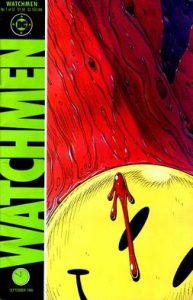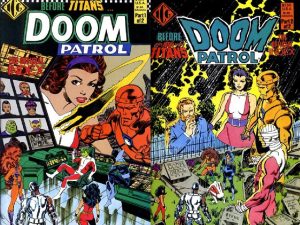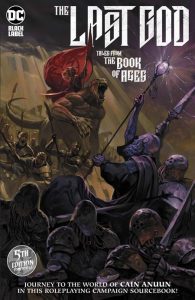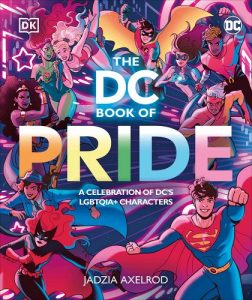 A picture is worth a thousand words. But sometimes a picture just isn’t enough. Comics are a medium that thrive on lore, the deeper story behind the story. Some lore is built off of years and years of previous stories, like how everyone knows Uncle Ben is dead and Superman’s planet exploded. But what happens if it’s been a while and people have forgotten the lore? Or what if there aren’t any previous stories to build the lore off of? That’s where additional material comes in! This can be few pages of text thrown in the back of a comic, or a standalone issue detailing where the characters have been and the story so far. But does anyone care about these lore dumps? When does it become too much unnecessary information and when is it useful? While most of that is up to personal preference, I decided to give examples of bonus lore in comics and what I think.
A picture is worth a thousand words. But sometimes a picture just isn’t enough. Comics are a medium that thrive on lore, the deeper story behind the story. Some lore is built off of years and years of previous stories, like how everyone knows Uncle Ben is dead and Superman’s planet exploded. But what happens if it’s been a while and people have forgotten the lore? Or what if there aren’t any previous stories to build the lore off of? That’s where additional material comes in! This can be few pages of text thrown in the back of a comic, or a standalone issue detailing where the characters have been and the story so far. But does anyone care about these lore dumps? When does it become too much unnecessary information and when is it useful? While most of that is up to personal preference, I decided to give examples of bonus lore in comics and what I think.

The first instance of additional lore content I came across in comics was in Watchmen. Alan Moore is notorious for creating deep and detailed worlds, and Watchmen is no exception. At the end of each issue, we get a few extra pages of text stories set in the universe of Watchmen. Whether it be excerpts from Hollis Mason aka Nite Owl’s book detailing his heroic escapades, or news clippings detailing the fall of the superhero community, we get some extra content to help expand on the story. Watchmen is an extremely dense comic like many Moore books, and can be tough for some to get through. I know one of my friends while reading it opted to skip the bonus text pieces at the end of each issue because they just wanted to read the comic straight through without having to break their flow. Overall, I think that the extra lore in Watchmen is important if you want to experience the whole story, including all of the connecting dots that become clearer when reading the text pieces. However, if you just want to read the comic and don’t mind missing some deeper lore, you can skip them.
Some worlds are just two big to be covered in a standard comic, and this was definitely the case for The Last God by Philip Kennedy Johnson and Ricardo Federici. A super ambitious new high fantasy world with a story following two groups of adventurers fighting the same evil at two different points in time. The monsters, environments, and history of this world were so expansive that each issue had extra pages describing them. Not only that, but there was even a standalone issue outlining places and creatures in detail, and even giving them stats and descriptions that allowed them to be used in a role-playing campaign. For this story, I’d say that the extra materiel in each issue is absolutely necessary. It gives insight into the world that you’re reading about and helps you follow the story easier. The extra book allowing integration into role-playing isn’t necessarily required, but if you’re even more curious of the world and the creatures that reside within it, I would suggest adding that to your reading list along with the main story.

What do you do if you want to learn about characters that have been around for a while, but don’t have the time to read 50 years’ worth of comics? Well, if you’re interested in learning about a handful of DC characters you can pick up some DC Comics indexes! These came out in the mid-eighties and are still a cool resource if you want to know the story so far. My personal favorite is the series covering Doom Patrol, but they did others including Teen Titans, Hawkman, and even one to help you follow along with Crisis on Infinite Earths (co-written by Mark Waid!). In addition to these index books, both Marvel and DC put out character guide comics. Who’s Who in the DC Universe, and the Marvel Encyclopedia went alphabetically through tons of different characters, teams, and even important places. Marvel and DC would even take some of these character profiles and put them in the backs of regular books to give you some additional background on the characters. There are even some modern day equivalents, and even one coming up showcasing queer characters in the DC universe! These are by no means necessary to fully appreciate the characters and stories they cover, but if you want to learn more about your favorite characters or even discover some weird or forgotten ones, check these out!
Overall, lore is still important in comics no matter how it is presented. Whether it’s presented directly within the panels, at the end with some extra goodies, or in a standalone bonus book, how important extra lore is really depends on how deep you want to read into the stories and characters. But if you want to learn more, there’s always plenty to dig into!




